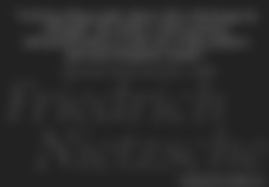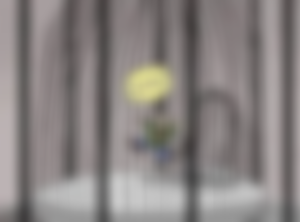
The more we grow up, the more we desire to become the independent individuals that hold their fate to their hands and that are able to fulfil their ambitions by making the utmost of themselves.
Every human has the desire to feel as a “full man”, meaning that he has to accomplish some goals that has set for himself which will allow him to feel satisfied about his accomplishment. Our parents since the early age have urged us to become strong, independent, and successful, meaning that automatically they have created a quasi portrait of our future self. At the same time we give a consistent battle with our self in the desperate effort to reach the expectations that we have set. But, is it really “us” who have set these expectations that lead our life to a specific path, or this is just an illusion of freedom of choice? When we start building our capabilities in order to make the most of our self we think that it is us who chose to do a specific thing, otherwise we would reject to do something we would feel we had been imposed to. This statement holds true only in the realm of justification of one’s own disability to confront a greater power; the social dictation! When someone sets his vision to a specific path in order to reach self-actualization, he is not led from his self per se, but rather from the social dictation that has shaped his self.

Self-actualization represents all those needs that a human being has in order to feel satisfied and happy about the person he has become. This is a concept that is correlated with happiness, thus it is of extreme importance to one’s state of being. As Olson (2013) states, “self-actualization represents growth of an individual toward fulfillment of the highest needs”. So the individual begins from earlier stages before he reaches this stage and once he achieves it, he believes that he has given a meaning to his life (Olson, 2013).

As Mitchell (n.d.) claims, “to promote our personal growth, we should learn to be authentic, to be aware of our inner selves and to hear our inner feelings and needs”. This is the moment when the individual has to be free of what holds him bounded to the trajectories that limit the capacity of the individual to self-awareness. This authenticity is claimed to derive from an inborn uniqueness. “Self-actualizing people enjoy an inborn uniqueness that carries over into everything they do” (Mitchell, n.d.). Thus when people are doing actions that will eventually lead them to self-actualization, they think that their actions belong completely to them, and that their decisions derive exclusively from their uniqueness. But how much uniqueness can a man possess in an environment that promotes uniformity?
Society is the common environment where people are born, live, socialize and eventually die. As Bouchard (2013) states, “society enables us to create our perceptions, and it allows us to make sense of the world at large”. Society is a powerful ultra-system created from the human to serve him.
Once the human gave life to this system and consolidated it with the institutions, he automatically bounded himself to the jurisdiction of society. “Our most basic processes of rationalization, communication, and interaction are molded by society and behavioral fine tuning” (Bouchard, 2013).
So in order to reach self-actualization, someone must be free in all aspects; freedom of actions, freedom of knowledge, freedom of expression. On the other hand, we have society, which is an ultra-system that is composed of many sub-systems, such as family, school, friendship, and many others.

Society has solidified itself through the institutions, such as parliaments, court, school, and church. So yet, regardless of the existence of this ultra-system, and our interaction with it, we still have to “keep it real” (Olson, 2013).
This freedom and independence, as to preserve the uniqueness is not feasible. “Freedom is the state of being aware of one’s own place in the world, taking responsibility for it, and deciding for one’s self how to act best: striving for authenticity” (Bouchard, 2013).
There cannot be a pure authentic expression, as the individual is a system that falls under the authority of the society as an ultra-system. We live and die within the society, and most important, we get the knowledge through the institutions that we have created in order to stabilize the society. In his desperate attempt to secure his existence from the threats of his fellow man, the individual signed the Social Contract; a manifestation where he willingly exchanged some of his freedom for a place within the society (Rousseau, 1762). Rousseau’s contribution to the perception of the reality within society is essential in order to understand the boundaries of the intrusion of society’s effect to individuality, and freedom of expression, since these are prerequisite for reach self-actualization.

Moreover Nietzsche (1886), an existentialist philosopher, stated that freedom of will and action, are bounded to the social norms that institutions such as church has created. The man is getting born and is dying within the norms that the institutions promote, but the institutions themselves are perpetuated.
Thus, the man, unless he is raised outside this realm and the effects of the institutions, is going to always be affected by his interaction with the entities of this ultra-system, called society. Yet, if he is raised outside of society, then we are not talking about a social being anymore, as our means of communication are socially constructed, meaning that they are not innate, but rather acquired through educative institutions such is school.
Automatically we have reached to the point that every piece of knowledge we have derives from society, and even the state of being conscious of it, is socially constructed. Even the notion of self-actualization is a notion socially constructed in order to characterize a specific “state of being”.

Thus the very notion of freedom as independence from social interaction ceases existing. Even the notion of thinking out of the box, is a notion socially invented that urges the individual to think or better to have the illusion that he thought out of the system. But self-actualization does exist, but it does not exist in the sense that Maslow believed that the individual is inner guided to reach his destiny.
The individual has to learn his role in the ultra-system called society, and once he realizes this and is conscious of where he stands and accepts the impermeability of the system as a perpetuate regulative entity, then he can start and built himself based on the capabilities that he acknowledges as needs and desires. The “freedom” and the change, begins when we realize that these words signify a psychological impact based on subjective interpretation, as they are subjective and bound in space and time. Ultimately, the individual is rather shaped by society; his expectations and goals, even his perception of fulfilling his objectives, is socially established through the interaction to the various sub-systems, just he lacks the cognitive ability to perceive of the existence of this illusion, as society promotes free will.
References
Bouchard, J. (2013). Personal Freedom and the Dictates of Society. The Jeffersonian.
Mitchell, G. (n.d.). THE ROAD TO SELF-ACTUALIZATION.
Nietzsche, F. (1886). Beyond Good and Evil: Prelude to a Philosophy of the Future.
Olson, A. (2013). The Theory of Self-Actualization.
Rousseau, J J. (1762). Of the Social Contract, or Principles of Political Right.





